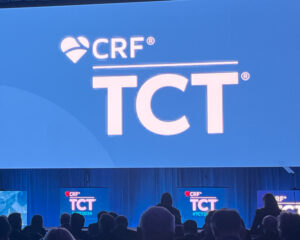 MitrAssist Lifesciences has announced initial clinical results of its Sikelia transcatheter heart valve were presented during the 2024 TCT conference (27–30 October, Washington, DC, USA), which the company says demonstrates the technology’s potential in improving outcomes for patients suffering from severe symptomatic aortic stenosis.
MitrAssist Lifesciences has announced initial clinical results of its Sikelia transcatheter heart valve were presented during the 2024 TCT conference (27–30 October, Washington, DC, USA), which the company says demonstrates the technology’s potential in improving outcomes for patients suffering from severe symptomatic aortic stenosis.
Sikelia is designed for the transcatheter aortic valve implantation (TAVI) procedure, and features a polymer leaflet design that is intended to allow enhanced durability and reduced thrombogenicity and calcification. The Sikelia valve is also fully retrievable at 100% frame expansion allowing reposition in case of misplacement.
The clinical trial results, involving 12 patients from four centers, with a maximum follow up of 27 months, revealed favourable safety and performance one-year outcomes.
A significant improvement in haemodynamic performance was demonstrated by reduced mean pressure gradient and increased effective orifice area (EOA). The functional status as assessed by NYHA class, six-minute walk test and Kansas City Cardiomyopathy Questionnaire (KCCQ) score was improved significantly in all measures. In addition, at one year follow-up, normal leaflet mobility without hypoattenuated leaflet thickening (HALT) or calcification was confirmed in all patients.
“The initial clinical results of Sikelia mark a significant milestone in our mission to transform patient care,” said Peggy Wang, CEO of MitrAssist. “We are excited about the potential Sikelia has to improve outcomes for patients suffering from severe aortic stenosis. Sikelia capabilities and these initial results provide a foundation for the next phases of clinical testing, and we look forward to continuing our work to bring this innovation to physicians and patients around the world.”
Xiaochun Zhang from Zhongshan Hospital and the Shanghai Medical College of Fudan University presented the initial results of this first-in-human, prospective, single-arm, multicentre study, on behalf of the study investigators. In addition to Zhongshan Hospital, the participating centres included Fuwai Yunnan Hospital, Chinese Academy of Medical Sciences, Xiamen Cardiovascular Hospital Xiamen University and Zibo Central Hospital.
“The initial outcomes we are seeing from Sikelia could represent a real breakthrough in the TAVI field,” said Junbo Ge from Zhongshan Hospital, principal investigator of the clinical trial. “The potential for improving patients’ outcomes is immense, and we are eager to continue gathering data and enhancing the application of this technology. These results are just the beginning, and they pave the way for more comprehensive studies in the near future.”













